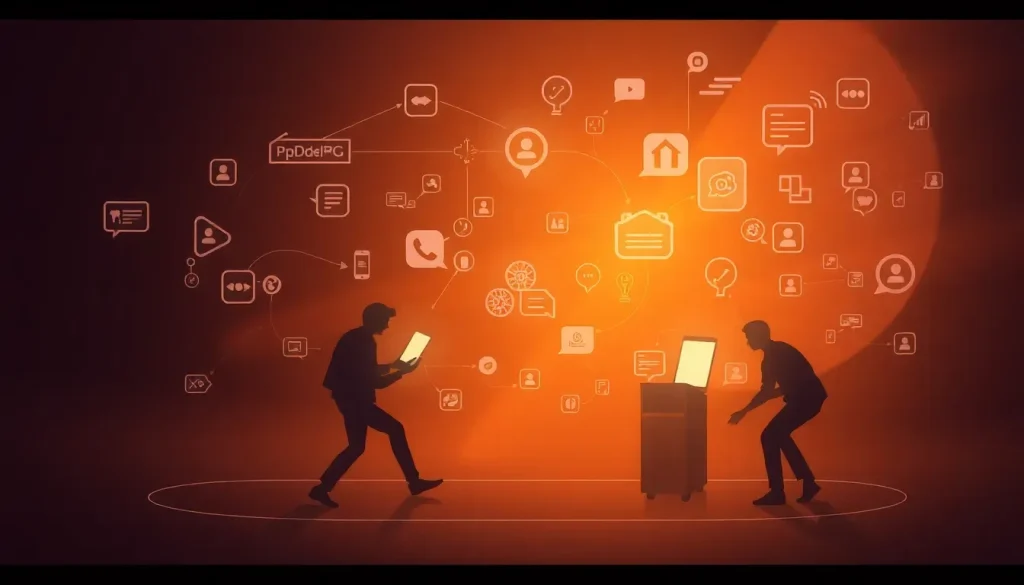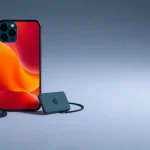What happened to cross-platform E2EE for RCS messaging?

The evolution of messaging technology has seen significant breakthroughs in recent years, particularly in the realm of security and privacy. As users become increasingly aware of the importance of protecting their communications, the demand for robust encryption methods has surged. One of the most talked-about advancements in this space is the Rich Communication Services (RCS) and its proposed end-to-end encryption (E2EE). But where do we currently stand on this crucial feature? Let’s delve deeper into the developments surrounding RCS and its potential for cross-platform encryption.
What is RCS and its Importance in Messaging?
Rich Communication Services (RCS) is designed to enhance traditional SMS messaging by incorporating features typically found in modern messaging apps. This includes:
- Read receipts, which inform users when their messages have been read.
- Typing indicators, letting you know when the recipient is composing a reply.
- The ability to send larger media files, such as photos and videos.
- Enhanced group chat functionalities.
RCS aims to provide a more engaging and interactive experience for users, making it a significant upgrade over standard SMS. However, the key differentiator remains the potential for improved security through encryption.
Will RCS get end-to-end encryption?
Earlier this year, Apple announced its leadership in a cross-industry effort to integrate end-to-end encryption into the RCS Universal Profile, which is managed by the GSMA. This initiative aims to ensure that messages are encrypted and can only be read by the intended recipients, blocking unauthorized access during transit.
With this robust encryption in place, RCS messages exchanged between iPhone and Android devices would be secure, rendering them unreadable to any third parties, such as service providers or hackers. This is a game-changer for user privacy and security.
Is RCS cross-platform?
RCS was designed with interoperability in mind, allowing messages to be sent across different platforms. However, the extent of this cross-platform functionality has been a subject of debate. Currently, iPhone users can send RCS messages to Android users, but the security features may differ based on the operating system involved.
While RCS has made strides toward being cross-platform, the implementation of E2EE remains inconsistent. Messages sent from iPhone to Android over RCS are only encrypted using transport-layer encryption, which protects data during transmission but does not ensure message security once it reaches the server.
Will Apple add end-to-end encryption to RCS messaging on iPhone?
Apple has publicly committed to introducing E2EE for RCS messaging in future software updates, which has left users anticipating the launch of this crucial feature. In a statement earlier this year, Apple emphasized the importance of E2EE and its commitment to enhancing privacy across its messaging services.
Apple's approach draws parallels to how it has implemented E2EE in its proprietary iMessage platform, where messages remain encrypted from the sender to the recipient, preventing any third-party access.
Is Apple RCS E2EE?
Currently, RCS does not come with end-to-end encryption by default, which is a common misconception among users. Google's Messages app offers E2EE for conversations between Android users utilizing RCS, but this level of security is not yet available for cross-platform messages involving iPhone users.
For messages sent from iPhone to Android via RCS, the encryption is limited to transport-layer encryption, which secures data in transit but does not prevent server-side access. This lack of full E2EE means that while RCS improves upon the vulnerabilities of SMS, it still falls short compared to platforms that prioritize user privacy, such as Signal or WhatsApp.
What are the implications of RCS without E2EE?
The absence of end-to-end encryption in RCS messaging raises several concerns for users:
- Messages may be accessible to service providers, potentially allowing for data interception or unauthorized access.
- Confidential communications could be compromised if third-party actors gain access to user data.
- The lack of universal adoption of E2EE could lead to fragmented security experiences among users on different platforms.
While RCS offers enhanced features over SMS, the lack of comprehensive encryption means it is not a complete solution for users seeking privacy in their communications.
The Future of RCS and E2EE
As the demand for secure messaging continues to grow, the evolution of RCS and its encryption capabilities will likely remain a focal point in the industry. The collaboration between tech giants like Apple and Google is essential for establishing standards that can enhance security for all users, regardless of their device.
Given the current trajectory, we can expect that:
- Ongoing updates will refine the RCS standards and introduce E2EE across platforms.
- Increased consumer demand for privacy will compel companies to prioritize encryption in their messaging services.
- Cross-industry cooperation will be crucial for the successful implementation of E2EE in RCS.
As we await further developments, it’s clear that both Apple and Google are committed to improving the security of their messaging services. This is a significant step towards ensuring user privacy in an era where data protection is more critical than ever.
For those interested in a deeper dive into the implications of RCS messaging and encryption, you might find this video informative:
As the landscape of digital communication continues to evolve, staying informed about the latest advancements and their implications for privacy and security is crucial for all users. The journey toward a fully secure RCS messaging experience is still underway, but the commitment from key players in the industry provides hope for a more secure future.




Leave a Reply